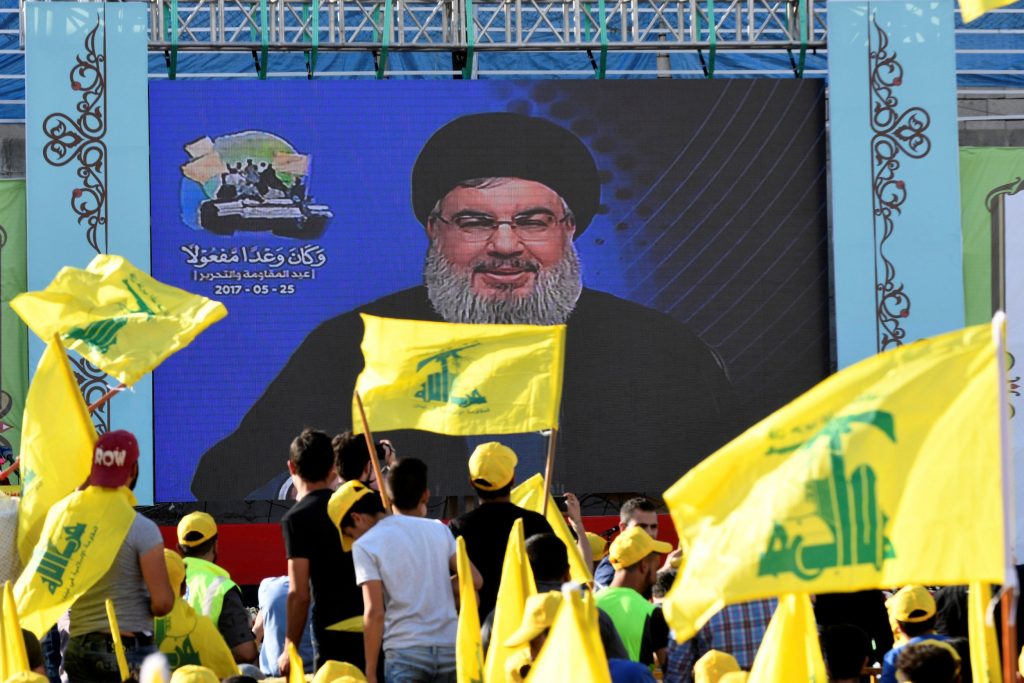
- ARAB NEWS
- 26 Apr 2024

Protests in Basra, Beirut and elsewhere thwart Iran’s most important political plan, which is building a regional market under its control.
The uprisings are a development that the leaders in Tehran did not anticipate, as they had regarded Iraq and Lebanon as subordinate states, whose task was to host a land corridor linking Tehran to Beirut. The Iranian plan, however, is falling apart in Iraq and shrinking in Lebanon as a result of the hostile protests against it. This was reinforced by protests against the regime that erupted simultaneously in all Iranian cities.
The market plan was mentioned in a speech delivered by Hezbollah Secretary-General Hassan Nasrallah. In his speech, he revealed the plan to exploit the Iraqi market by linking it to Syria and Lebanon through the so-called Iranian land corridor.
In his televised speech last month, Nasrallah said: “What is the opportunity? It is Iraq. Iraq is a big and rich country. We have one problem. How would Lebanon’s agricultural products reach Iraq? How would the Lebanese industrial production reach Iraq? What would all this lead to? It will reactivate the agriculture sector, revive the factories, open a horizon for new factories. What does all this depend on? Well, since we cannot export by sea and do not export potatoes to Iraq by air, our products must be exported by land, depending on one step: That the Lebanese government agrees with the Syrian government (to have a land link) between the crossings from Lebanon to the Al-Bukamal border crossing (between Syria and Iraq). The Americans have worked day and night to prevent the opening of the latter. One of the reasons for the (US) outrage against the Iraqi Prime Minister, Adel Abdul Mahdi, is his insistence on opening the Al-Bukamal border crossing with Syria. Take it from me, and I know the details, the Americans have not spared any means of pressure or threat to prevent the opening of the Al-Bukamal crossing. The ‘excuse/lie’ is that, through the Al-Bukamal crossing, missiles will pass to Lebanon.”
This is what Nasrallah said, and we realize that the escalation of the Syrian war has been taking place in unison with a project of Iranian domination by armed force in three countries — Iraq, Syria and Lebanon — with an action plan to control all their markets.
In his speech, Nasrallah focused on the Iraqi border crossing with Syria because it is, indeed, the gateway for the militias and missiles of the Iranian project, in addition to potatoes and other goods. The Iranian regime is unable to transport these militias and missiles by air or sea, and has discovered that using distant sea lanes via the Atlantic Ocean was an expensive and dangerous operation.
What about Nasrallah’s trade integration?
The idea is not new. Before the Iranian intervention, Lebanon used to export agricultural and industrial products to the Iraqi and Gulf markets; but Hezbollah has destroyed Lebanon’s economy and stability by insisting on keeping its weapons.
Iran now intends to create its own regional economies that will bolster its political influence and war effort in the region; not to create independent economies that help the people of the countries concerned and strengthen their governments. In Lebanon itself, Hezbollah has filled its south and northeast with hashish farms and drug factories, imposed exorbitant tariffs and excluded those who disagreed with it from the market; leading to mounting hostility against it in areas such as Baalbek-Hermel.
In fact, Lebanon has lived for a decade-and-a-half under the almost total domination of Hezbollah. The result is the current deterioration of people’s living conditions, a shrinking economy, and widespread corruption.
Like the Lebanese, the Iraqi people, led by Shiites, have revolted too: Demanding decent living standards, and refusing to be a “cash cow” for Iran’s Islamic Revolutionary Guard Corps and its militias.